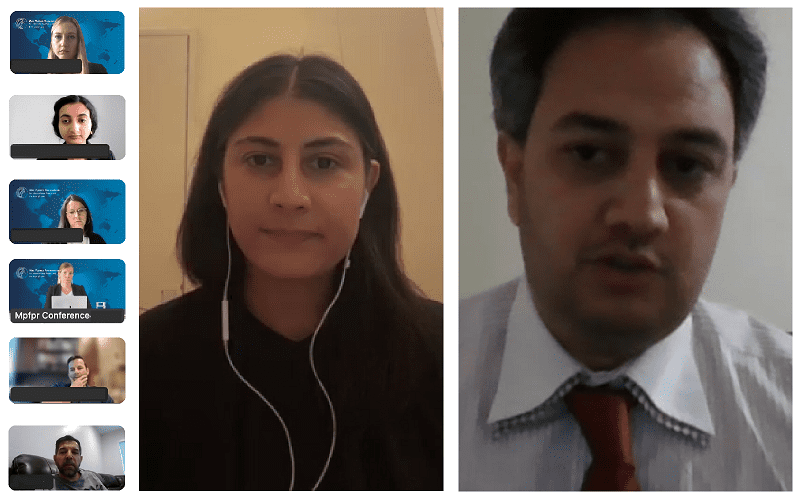The proceedings offered perspectives on the administration of justice and the fight against money laundering in Afghanistan—both past and present.
On 31 August 2022, the Max Planck Foundation hosted the eighth Afghanistan Legal Research Network symposium of 2022. Afghan scholars presented their current research on Afghan compliance with international anti-money laundering and counter-terrorist financing laws and the rise and fall of justice in the Afghan judicial system under the Islamic Republic and Islamic Emirate.
Tahmina Safi, former Primary Criminal Court Judge and current International Sanctions and Embargoes Compliance Analyst, considered Afghanistan’s level of compliance with the Fourth EU Directive on Anti-Money Laundering and Counter-Terrorist Financing and the Financial Action Task Force (FATF) 40 Recommendations. Her research traces the effects of Afghanistan’s listing by the EU as a high-risk third country for AML/CFT on the Afghan economy and the wider implications for Afghanistan’s de facto rulers.
Abdul Wase Samim, a Council for At-Risk Academics (CARA) fellow at the University of Leicester Law School, presented his comparative analysis of the Taliban’s judicial system against the backdrop of the practices of preceding decades, discerning institutional capabilities inherited from the pre-2021 Islamic Republic which may yet be preserved in the interest of justice and the rule of law.
As Afghanistan’s legal sector faces an uncertain future, the speakers inspired reflection also on the former government’s challenges and successes, and questioned what might realistically be achieved with the current framework.

